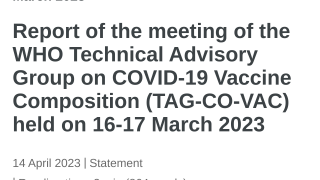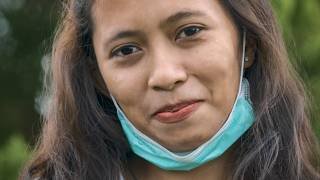Natural Immunity Also Protects People from COVID-19
For someone previously infected with COVID-19, their risk of hospitalization or death is 88% lower for at least ten months compared to those who had not been previously infected, according to a systematic review and meta-analysis published in The Lancet, a peer-review journal.
Announced on February 16, 2023, this analysis also suggests that the level and duration of protection against reinfection, symptomatic disease, and severe illness is at least equal to that provided by two doses of a COVID-19 mRNA vaccine for various SARS-CoV-2 coronavirus variants.
Since January 2021, several studies and reviews have reported the effectiveness of past COVID-19 infections in reducing the risk of reinfection and how immunity wanes over time.
But none has comprehensively assessed how long the protection after natural infection will last and how durable that protection will be against different variants.
To provide more evidence, the researchers conducted a review and meta-analysis of all previous studies that compared the reduction in risk of COVID-19 among non-vaccinated individuals against a SARS-CoV-2 reinfection to non-vaccinated individuals without a prior infection up to September 2022.
It included 65 studies from 19 countries and evaluated the effectiveness of past infections by outcome, variant, and time since infection. Studies examining natural immunity in combination with vaccination were excluded from the analyses.
"Vaccination is the safest way to acquire immunity, whereas acquiring natural immunity must be weighed against the risks of severe illness and death associated with the initial infection," says lead author Dr. Stephen Lim from the Institute for Health Metrics and Evaluation at the University of Washington's School of Medicine.
Data analysis from 21 studies reporting on time since infection from a pre-Omicron variant estimated that protection against reinfection from a pre-Omicron variant was about 85% at one month—which fell to about 79% at ten months.
Protection from a pre-Omicron variant infection against reinfection from the Omicron BA.1 variant was lower (74% at one month) and declined rapidly to 36% at around ten months.
Nevertheless, analysis of five studies reporting on severe disease (hospitalization and death) found that protection remained universally high for ten months: 90% for ancestral, Alpha, and Delta, and 88% for Omicron BA.1.
Six studies evaluating protection against Omicron sub-lineages specifically (BA.2 and BA.4/BA.5) suggested significantly reduced protection when the prior infection was a pre-Omicron variant. But when the past infection was Omicron, protection was maintained at a higher level.
Co-author Dr. Hasan Nassereldine commented in a press release, "The limited data we have on natural immunity protection from the Omicron variant and its sub-lineages underscores the importance of continuous assessment, particularly since they are estimated to have infected 46% of the global population between November 2021 and June 2022."
"Further research is also needed to assess the natural immunity of emerging variants and to examine the protection provided by combinations of vaccination and natural infection."
The researchers note some limitations of their study, cautioning that the number of studies examining the Omicron BA.1 variant, its sub-lineages, and the number from Africa was generally limited. In addition, only limited data were available beyond ten months after the initial infection.
They also note that some information, such as past infection status and hospital admissions, was measured differently or incomplete and could bias the protection estimate.
Writing in a linked Comment, Professor Cheryl Cohen, National Institute for Communicable Diseases, South Africa, who was not involved in the study, says, "The high and sustained levels of protection conferred by previous infection against severe disease have important implications for COVID-19 vaccine policy."
The study was funded by Bill & Melinda Gates Foundation, J. Stanton, T. Gillespie, and J. and E. Nordstrom. The study team included researchers from the Institute for Health Metrics and Evaluation at the University of Washington's School of Medicine, USA. No industry conflicts of interest were disclosed.












.jpg)


.jpg)






.jpg)